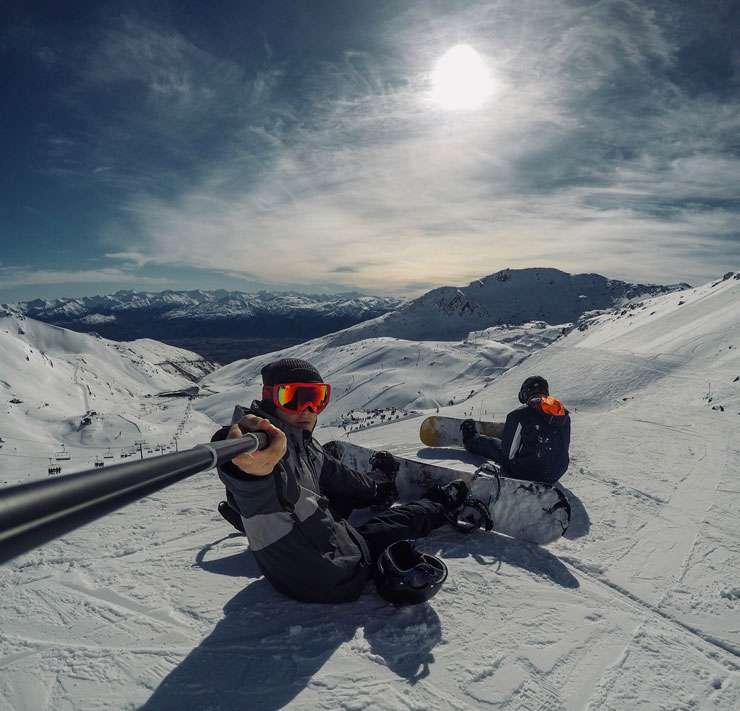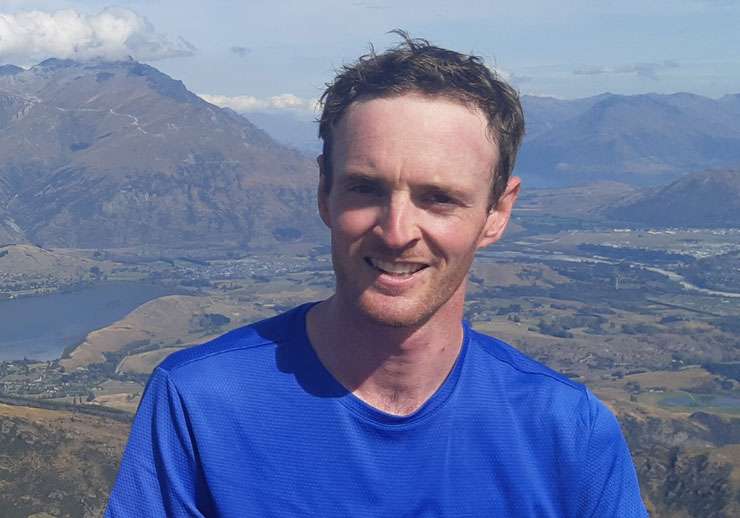First home buyers, mum and dad investors, and developers sitting on vacant land may be more at risk of having to sell up as Queenstown adjusts to the new normal of no international tourists and fewer jobs.
Research by OneRoof and its data partner Valocity shows that first home buyers in Queenstown have been among the most active in the last two years and while this group will be reluctant to sell their homes, mortgages in the expensive tourist town are high and the end of wage subsidy and mortgage deferral scheme could put homeowners under pressure.
That’s especially pertinent to those who bought during the last five years.
Houses bought at the height of the boom, when Queenstown’s prices shot up, won’t have acquired much in the way of equity, compared to homes bought pre-boom which have increased substantially in value, and some people might find themselves in negative equity situations.
Start your property search
On the other hand, first home buyers - unlike investors - are likely to want to stay put if they can, says James Wilson, Valocity director of valuation innovation.
While Queenstown’s median property value has risen two percent in the last 12 months to $1.005 million OneRoof’s new Covid index shows the city has been hit hard by the coronavirus. While house values in every other major metro market have bounced back to almost pre-Covid levels, values in Queenstown have dropped 7.3 percent since March 25, the day before country went into lockdown.
The slide in values has major implications for homeowners in the region.
The OneRoof-Valocity research found that over 65 percent of Queenstown sales between 2015 and 2020 were for less than $1 million, with first home buyers making up the largest individual share of registrations.
Overexposed
“There may be some who have overexposed themselves mortgage-wise but the figures do paint a somewhat more hopeful picture because, of course, first home buyers are generally buying for utility - they want to live in the house,” Wilson says.
“It means if they’ve kept their jobs, you might not see that housing stock being sold off for the sake of it.”
Queenstown features high levels of new housing stock compared to other parts of the country, with 17.3 percent of total residential and lifestyle housing stock built since 2010.
Investors and “mum and dads”, who own more than one home, made up a combined 23.15 per cent of owners in the town.
There may be some sales among the multi-owners, who include people who have bought a second house to rent out, Wilson says.

Snowboarders enjoy Queenstown’s peaks. The region’s economy is heavily reliant on international tourists but New Zealand’s border closure has crippled that revenue stream. Photo / Getty Images
“Those are people that are often making the most of things like Airbnb. If they suddenly lose the income from that property they may not be able to sustain the ownership. That’s definitely a group where they’re probably the first ones to, colloquially, dump their stock, because they’re not first home buyers and they’re not living there permanently.”
A unique housing market
Queenstown is its own “bubble”, Wilson says.
“It’s probably our only genuinely international market. It’s a holiday destination and it attracts some very high worth individuals and it attracts some short-term investment options. It’s definitely a very different housing market to any other in New Zealand.”
Wilson says the figures also show that Queenstown has a high percentage of vacant residential land compared to other parts of the country and that’s a concern because as developers sitting on that land come under pressure they may opt to lower the price to get a faster sale.
“This can have the effect of distorting the price of modern developments by lowering the price for new land in a development.

Valocity director of valuation James Wilson: “[Queenstown] is probably our only genuinely international market.” Photo / Supplied
“It will definitely be an area to watch as the pressure on landowners might come on as Covid conditions roll forward.”
Charlie Reid, of Mortgage Link, Central Otago, has concerns for first home buyers who have been active in a lot of the new builds, including buying into subdivisions like Hanley’s Farm, about ten minutes from Frankton.
One of the major reasons was the ability for them to get a 90 percent loan instead of an 80 percent loan because new builds were exempt from the old LVR restrictions.
Holiday rental collapse
“Over the last couple of years an average property [in Queenstown] was probably $750,000 to $800,000. An 80 per cent loan meant you had to have $160,000 available [for a deposit]. However, with a new build you could get away with a 90 per cent loan which meant an $80,000 [deposit],” Reid says.
But with new homes packages some people might have paid a 10 per cent deposit 12 months ago but without the loan approval. “They had the deposit but when title comes through and they have to settle, how are they going to settle? Are they still employed, are they still earning the same money?” Reid says.
A lot of people who bought, or built, during the boom years also added a self-contained unit to take advantage of what was a strong rental market, but the Airbnb market collapse means they are without tenants and under income pressure.

Queenstown economist Benje Patterson: “I think we’re going to have quite a trough until we hit the Christmas period.” Photo / Supplied
Saving them are mortgage holidays and interest-only measures, but Reid says banks will at some point make they decision they can’t continue with people adding to their loans while the value of their property is decreasing, and buyers with a 90 per cent loan could end up in negative equity.
Someone with an $800,000 property on a 90 per cent loan at an interest rate of 3.5 per cent over 30 years is paying around $750 a week, he says. An interest-only option would take the payment down to about $485 a week, but it also means their loan is increasing by around $750 a week.
“You add 50 weeks on to that and all of a sudden the equity’s starting to disappear,” Reid says, adding that he’s trying to give would-be buyers as much information as he can. “There’s a hell of a lot of an unknown here at the moment as to what’s going to happen.”
Fantastic time to buy
Benje Patterson, a Queenstown-based economist, says those who have bought recently may struggle. “I look around our neighbourhood and I see houses like ours, and these are not executive homes, they’re just large, everyday family homes, and I say ‘have you really paid that much to buy that?’”
He says: “I’ve been looking a lot of those, and even ones that are transacting now, and I think, ‘Wow, it doesn’t take much of a price movement for those people to get into a situation of negative equity.’”
A lot of people have moved to Queenstown in the last few years and many will have bought homes.
“You can very easily have a few hundred households in Queenstown that entered the market, that were new to the area last year, that purchased and for whom even a five percent price movement puts them in a very precarious situation,” Patterson says.
Queenstown is still being buffered by the wage subsidy and domestic visitors, but visitor numbers will drop, he says.
“There’s only so many times an Aucklander can visit Queenstown each year so I think we’re going to have quite a trough until we hit the Christmas period. We’re going to have a low season for the first time in many years and it’s just at that period as people come off the second wave of the wage subsidy.”
For those with job security, however, it’s a fantastic time to buy, he says.
Getting a low 2.5 percent interest rate means $7500 less in interest rate expenses on a $500,000 loan. “You would have had to clear $10,000 or $11,000 of extra income before tax to be able to earn that money so it’s like you’ve had a pay rise,” he says.















































































